Abstract
Sixteen patients with corrosive acid ingestion were studied. The majority of patients (n = 10) had ingested sulphuric acid, and three other patients had ingested hydrochloric acid. The extent and severity of upper gastrointestinal tract injury was determined by fibreoptic endoscopy and necropsy. All the patients had oesophageal and gastric involvement but the duodenum was spared in the majority. The injury was not considered as mild (grade I) in any of these patients; five patients having moderate (grade II) and 10 patients having severe (grade III) injury. Complications and mortality occurred only in patients with grade III injury. Feeding jejunostomy for nutritional support was used in five patients (all grade III) with good results.
Full text
PDF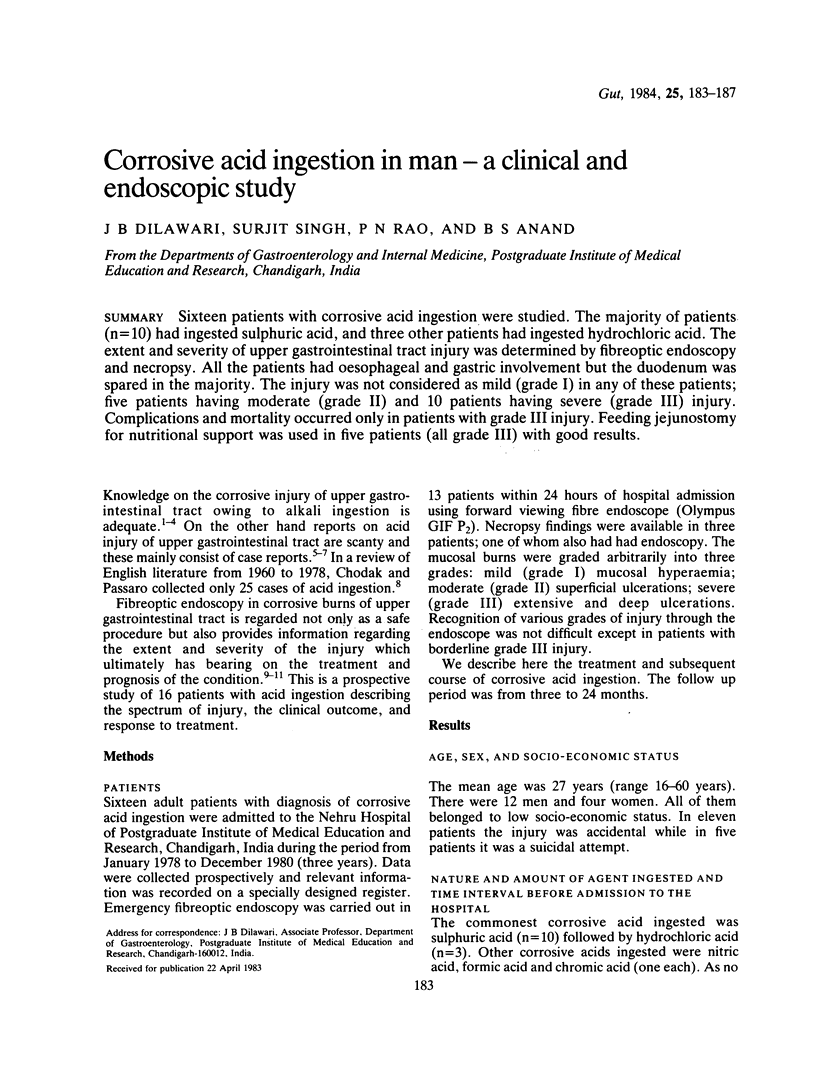
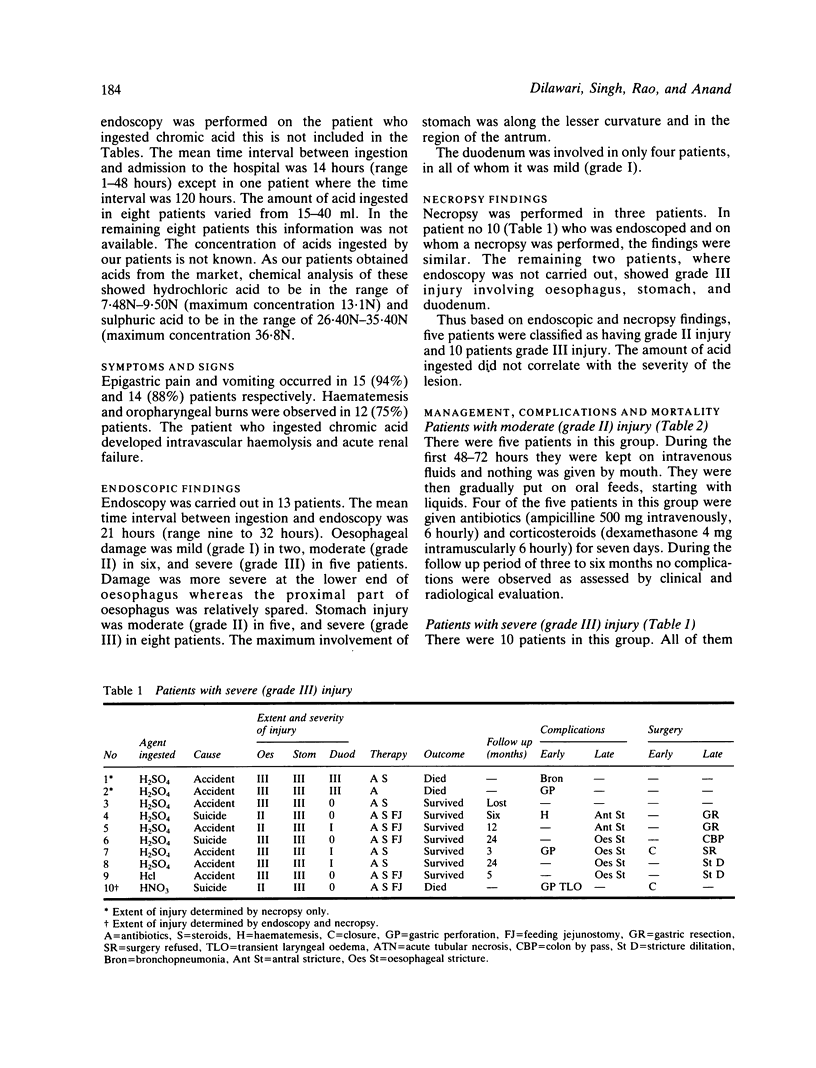
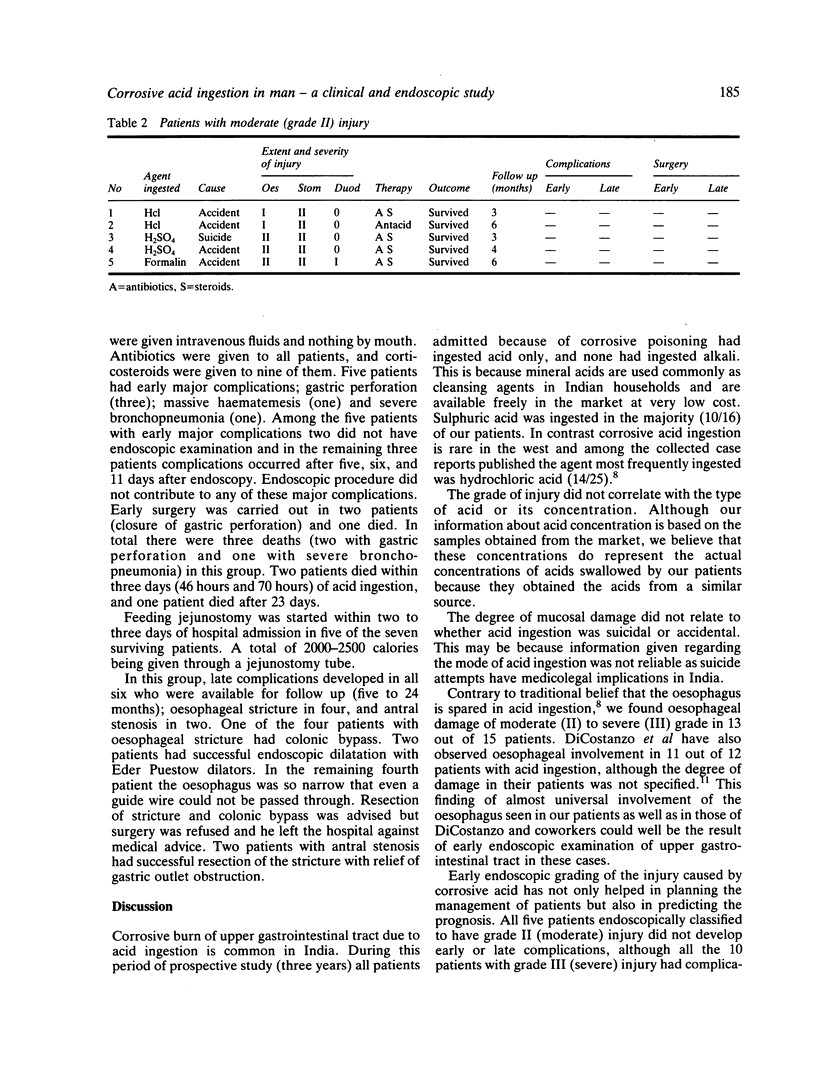
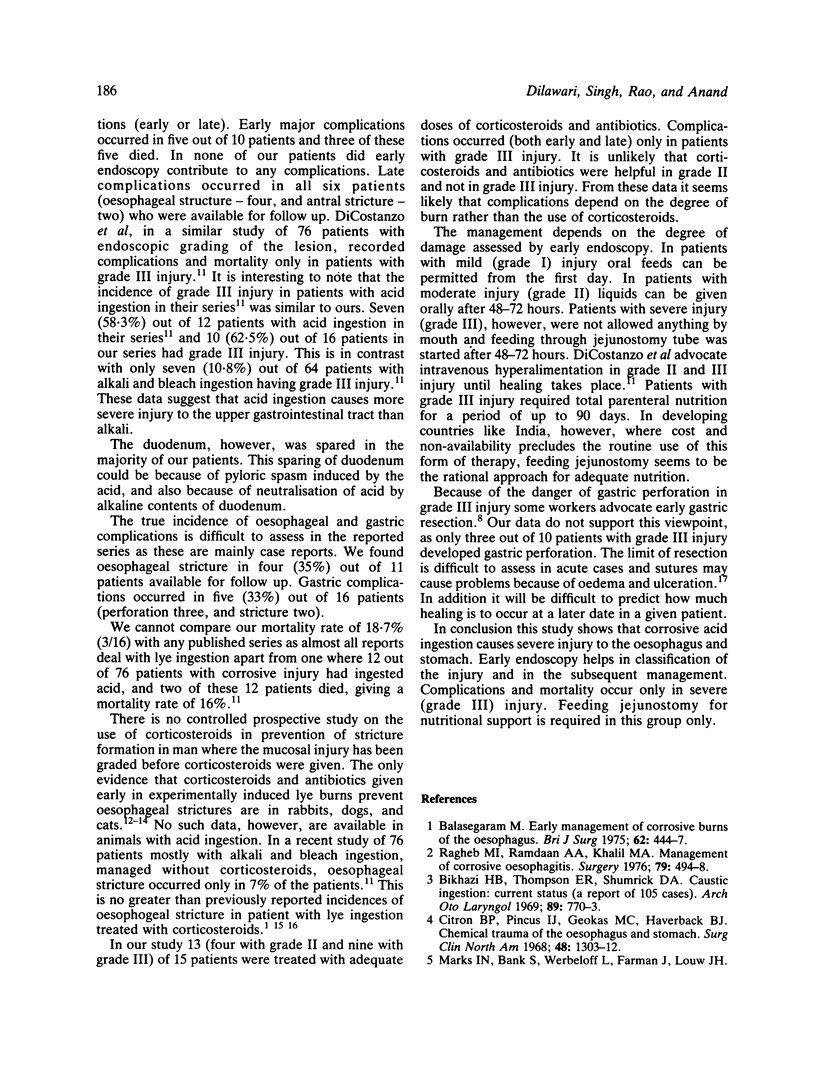
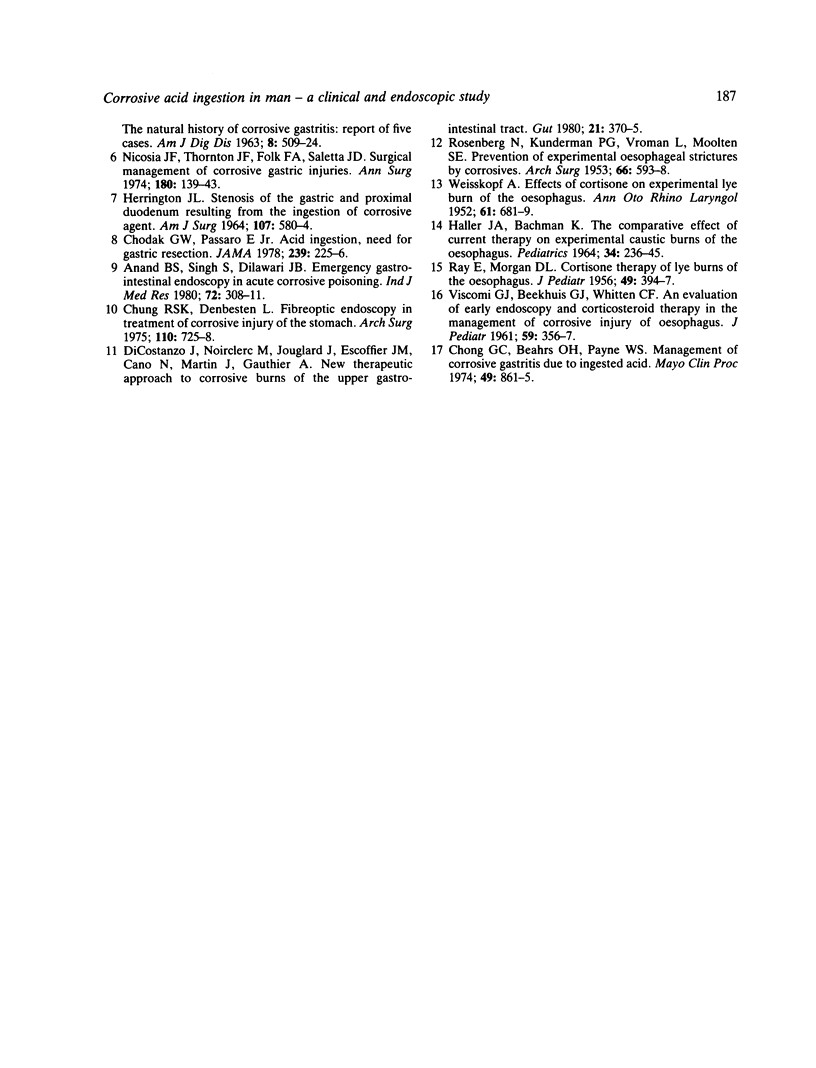
Selected References
These references are in PubMed. This may not be the complete list of references from this article.
- Anand B. S., Singh S., Dilawari J. B. Emergency upper gastrointestinal endoscopy in acute corrosive poisoning. Indian J Med Res. 1980 Aug;72:308–311. [PubMed] [Google Scholar]
- Balasegaram M. Early management of corrosive burns of the oesophagus. Br J Surg. 1975 Jun;62(6):444–447. doi: 10.1002/bjs.1800620606. [DOI] [PubMed] [Google Scholar]
- Bikhazi H. B., Thompson E. R., Shumrick D. A. Caustic ingestion: current status. A report of 105 cases. Arch Otolaryngol. 1969 May;89(5):770–773. doi: 10.1001/archotol.1969.00770020772019. [DOI] [PubMed] [Google Scholar]
- Chodak G. W., Passaro E., Jr Acid ingestion. Need for gastric resection. JAMA. 1978 Jan 16;239(3):225–226. doi: 10.1001/jama.239.3.225. [DOI] [PubMed] [Google Scholar]
- Chong G. C., Beahrs O. H., Payne W. S. Management of corrosive gastritis due to ingested acid. Mayo Clin Proc. 1974 Nov;49(11):861–865. [PubMed] [Google Scholar]
- Chung R. S., DenBesten L. Fiberoptic endoscopy in treatment of corrosive injury of the stomach. Arch Surg. 1975 Jun;110(6):725–728. doi: 10.1001/archsurg.1975.01360120043008. [DOI] [PubMed] [Google Scholar]
- Citron B. P., Pincus I. J., Geokas M. C., Haverback B. J. Chemical trauma of the esophagus and stomach. Surg Clin North Am. 1968 Dec;48(6):1303–1311. doi: 10.1016/s0039-6109(16)38691-1. [DOI] [PubMed] [Google Scholar]
- Di Costanzo J., Noirclerc M., Jouglard J., Escoffier J. M., Cano N., Martin J., Gauthier A. New therapeutic approach to corrosive burns of the upper gastrointestinal tract. Gut. 1980 May;21(5):370–375. doi: 10.1136/gut.21.5.370. [DOI] [PMC free article] [PubMed] [Google Scholar]
- HALLER J. A., BACHMAN K. THE COMPARATIVE EFFECT OF CURRENT THERAPY ON EXPERIMENTAL CAUSTIC BURNS OF THE ESOPHAGUS. Pediatrics. 1964 Aug;34:236–245. [PubMed] [Google Scholar]
- HERRINGTON J. L., Jr STENOSIS OF THE GASTRIC ANTRUM AND PROXIMAL DUODENUM RESULTING FROM THE INGESTION OF A CORROSIVE AGENT. Am J Surg. 1964 Apr;107:580–585. doi: 10.1016/0002-9610(64)90324-1. [DOI] [PubMed] [Google Scholar]
- MORGAN D. L., RAY E. S. Cortisone therapy of lye burns of the esophagus. J Pediatr. 1956 Oct;49(4):394–397. doi: 10.1016/s0022-3476(56)80223-0. [DOI] [PubMed] [Google Scholar]
- Nicosia J. F., Thornton J. P., Folk F. A., Saletta J. D. Surgical management of corrosive gastric injuries. Ann Surg. 1974 Aug;180(2):139–143. doi: 10.1097/00000658-197408000-00001. [DOI] [PMC free article] [PubMed] [Google Scholar]
- ROSENBERG N., KUNDERMAN P. J., VROMAN L., MOOLTEN S. E. Prevention of experimental esophageal stricture by cortisone. II. Control of suppurative complications by penicillin. AMA Arch Surg. 1953 May;66(5):593–598. doi: 10.1001/archsurg.1953.01260030610007. [DOI] [PubMed] [Google Scholar]
- Ragheb M. I., Ramadan A. A., Khalia M. A. Management of corrosive esophagitis. Surgery. 1976 May;79(5):494–498. [PubMed] [Google Scholar]
- VISCOMI G. J., BEEKHUIS G. J., WHITTEN C. F. An evaluation of early esophagoscopy and corticosteroid therapy in the management of corrosive injury of the esophagus. J Pediatr. 1961 Sep;59:356–360. doi: 10.1016/s0022-3476(61)80289-8. [DOI] [PubMed] [Google Scholar]
- WEISSKOPF A. Effects of cortisone on experimental lye burn of the esophagus. Ann Otol Rhinol Laryngol. 1952 Sep;61(3):681–691. doi: 10.1177/000348945206100309. [DOI] [PubMed] [Google Scholar]


